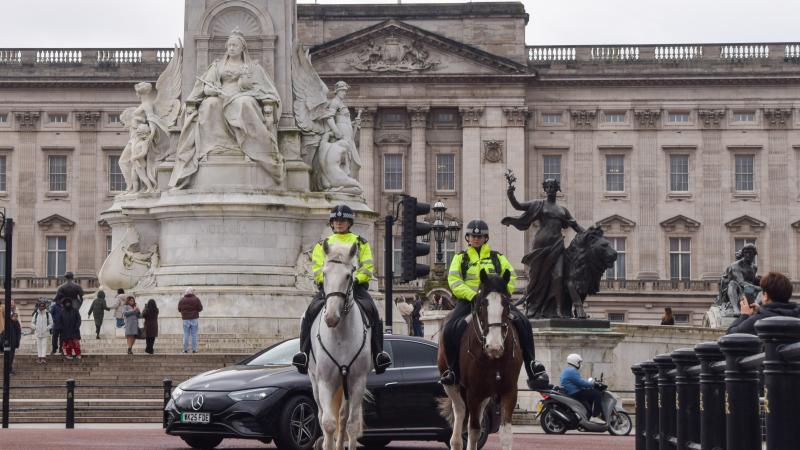With first global crisis, Biden considers sanctions after Myanmar coup
The coup unfolded ahead of the Feb. 1 opening day of the first session of parliament after the country's elections.
After U.S. officials reacted with shock to news of a weekend military coup in Myanmar, President Joe Biden condemned the takeover, threatening sanctions against the new regime while "taking note" of where other countries stand regarding the crisis.
"The United States expresses grave concern and alarm regarding reports that the Burmese military has detained multiple civilian government leaders, including State Counsellor Aung San Suu Kyi, and civil society leaders," Secretary of State Antony Blinken said in a statement immediately following the Sunday takeover. Blinken asked Burma military leaders to release the prisoners, while President Joe Biden called on the international community to hold accountable those behind the coup.
The takeover unfolded ahead of the scheduled Feb. 1 opening day of the first new session of parliament following the country's November elections. In those elections, incumbent Aung San Suu Kyi reportedly won by a wide margin. The military-backed opposition claimed, though, that the election was invalid. The military alleged problems with voter lists and possible fraud.
American officials denounced the Myanmar coup without referencing similar allegations surrounding the U.S. 2020 elections.
"The military's seizure of power in Burma, the detention of Aung San Suu Kyi and other civilian officials, and the declaration of a national state of emergency are a direct assault on the country's transition to democracy and the rule of law," Biden said in a statement Monday. "In a democracy, force should never seek to overrule the will of the people or attempt to erase the outcome of a credible election."
Biden continued with pointed language directed at the international community.
"The United States is taking note of those who stand with the people of Burma in this difficult hour," he said. "We will work with our partners throughout the region and the world to support the restoration of democracy and the rule of law, as well as to hold accountable those responsible for overturning Burma's democratic transition."
U.S. Senate Majority Leader Chuck Schumer described the military takeover as "deeply disturbing" and noted that Congress is standing by to help.
"I hope that we can productively work together in a bipartisan fashion to determine the best course of action for America's interests and for the people of Myanmar," Schumer said Feb. 1 while speaking before the Senate.
Known both as Burma and Myanmar, the Southeast Asian country sits between India, Bangladesh, China, Laos, and Thailand. During World War II, Burma served as a base for long-range U.S. Army guerrilla operations against Japan.
The now deposed leader, Aung San Suu Kyi, came to power in Myanmar in 2015 when her National League for Democracy (NLD) won the general election. The government clashed over the years with insurgents from various ethnic rebel groups, but established a series of ceasefires amid ongoing peace talks.
A shift was telegraphed in recent weeks when the military stepped up its actions in one mountainous region of the country, according to statements from the Free Burma Rangers, a humanitarian organization founded by former U.S. Army Special Forces officer David Eubank.
"Burma Army attacks have increased in Karen State, Burma, in spite of a ceasefire," the group wrote on Facebook on Friday. "This is very unusual activity since the signing of the ceasefire between the Burma Army and Karen State leaders."
Some 4,000 people were displaced when the military launched artillery and other gunfire, the group claimed. "Our teams are providing medical care and trying to get food in but the Burma Army is blocking all access to the area so people have to carry all the rice and find ways around them," the group posted on Jan. 27
Despite being timed to the new session of parliament, the coup surprised observers who noted that the military already had considerable clout under the previous government.
"The army could have retained its power without seizing the country by force," one U.S. intelligence analyst told Just the News. The bold move, the analyst said, points to the possibility of a power struggle within the army itself. "A coup is a way to settle that issue decisively."
According to the former Special Forces officer, Eubank, the military takeover was helpful in one unexpected way: It clarifies who is in charge of Myanmar. "Before this, the Burma military made a pretense of Aung Sang Suu Kyi and the National League of Democracy and other groups having some control, but in reality, the military held the true power behind the scenes," he noted. "This coup has revealed that."
The military has said that it declared a state of emergency, and will retain control over the country for one year.
















